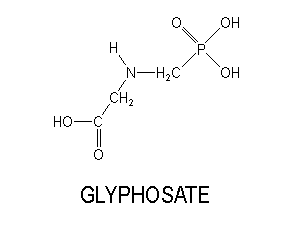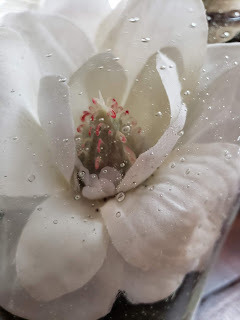Glyphosate In Food and Cancer
 |
| Photo Credit: GlobalResearch.com |
Glyphosate, What Is It?
It's in the news, you're hearing about it all the time, so what is this? Simply put glyphosate is an herbicide. It is applied to the leaves of plants and grasses to control the Broadleaf plant and grasses.
Broadleaf is an invasive weed that can/will overtake plants, crops, and grasses if it is left to grow uncontrollably. Broadleaf will "smother" the plants and crops and starve them for sunlight and water.
Glyphosate is used as a way to regulate this plant growth, and even ripen some crops. It was first introduced in the United States in 1974, and itis the most widely used herbicide in the United States.
| photo credit: npic.orst.edu |
According to the EPA, glyphosate is low in toxicity for people. In December of 2017, the EPA did what they call a Risk Assessment on glyphosate and found the is NOT likely to be a carcinogen to humans. However, pets and other animals may suffer stomach upset if they consumed/ingested or touched plants that had just been sprayed with glyphosate.
Long Term Use and In The News
Why do we continue to use this product? It has been found to be very effective against the broadleaf plant weeds. It prevents the weed to make a protein it needs to grow, making the crops and plants prosper with its usage.
Glyphosate has been in the news quite a bit of late. According to US News & World Report, it has been linked to high profile cancer cases. Further, according to Oregon State University's National Pesticide Information Center, glyphosate is in over 750 products sold in the United States.
| photo credit: beyondtoxics.org |
What Can We Do
First, little is known about how much could be in people's diets or bodies. We as humans can be exposed through food, drinking water, or the use of agricultural products like weed killer. Independent groups are petitioning the CDC to include glyphosate on its National Biomonitoring Program so that it can become one of the products that are continually monitored.
| photo credit: mammavation.com |
Glyphosate in its highest concentration, 4-6 times higher than the recommended levels for children, was found in none other than in Cheerios and Honey Nut Cheerios, along with 19 other kinds of cereal and snack products! The buyer must be aware of this herbicide. If YOU personally feel the presence of this is NOT good in your food, you must make the decision to not buy/eat or use the products that contain glyphosate. One can reduce the use and consumption of food products that are genetically modified. Please reduce the use of a personal weed sprayer and don't hire landscape services that include this herbicide on your lawn.
| photo credit: Amazon.com |
You must look for symbols, and some new ones are currently being explored, which says that the product is NON-GMO. You will find products like this most likely tend to be from organic food sources. There is a movement out there trying to improve all of the farming into less and fewer chemicals and using other sources other than chemicals to control weeds and pests. We are a long way of and all a consumer can do is beware, read all the labels of products you buy, and seek other sources such as organic in your personal efforts to be chemical-free with your food.
Further information can be found on this subject by going to these different websites:
https://www.epa.gov
https://www.cdc.gov
https://www.usnew.com

Comments
Post a Comment